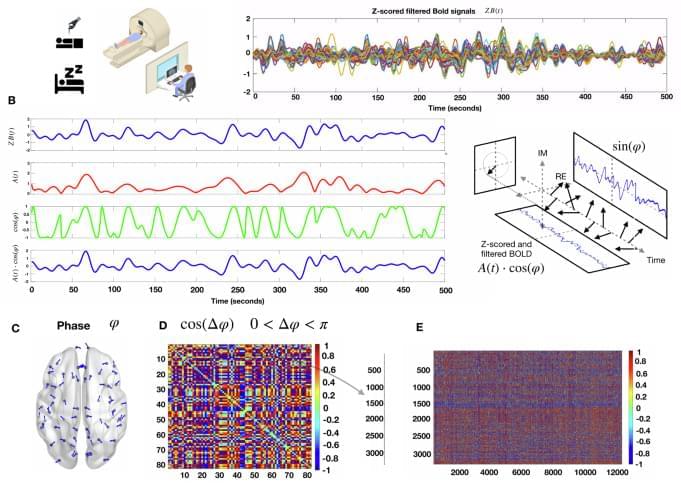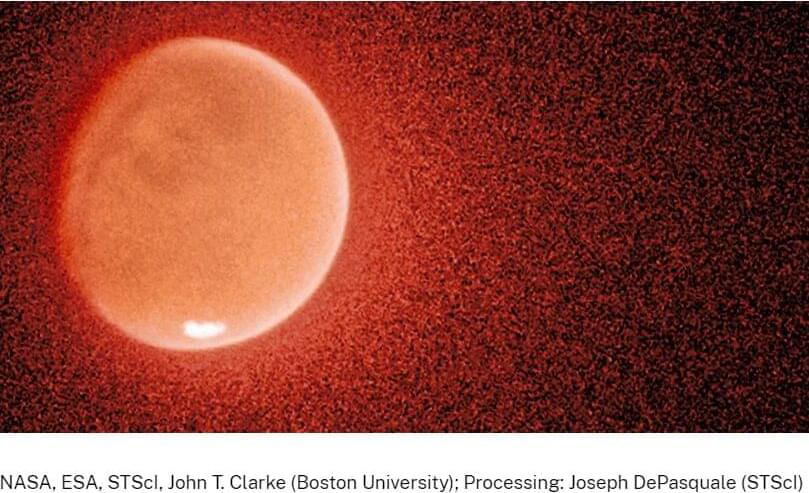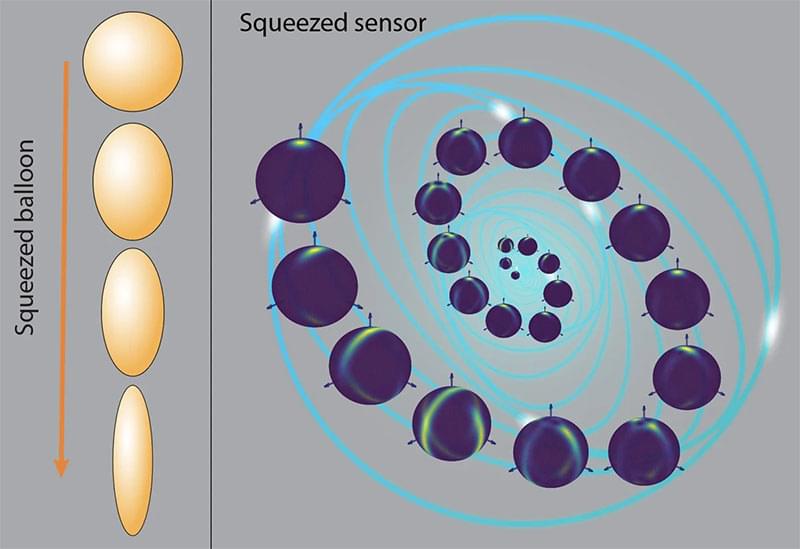Dynamical analysis of resting-state fMRI networks reveals a consistent increase in structure-function correlation and entropy decrease upon both general anesthesia-induced and deep sleep-induced loss of consciousness in humans.
SCIENTISTS claim to have reversed a woman’s type 1 diabetes with a pioneering stem cell transplant.
The 25-year-old had suffered from the chronic condition for more than a decade.
Mars was once a very wet planet, as is evident in its surface geological features. Scientists know that over the last 3 billion years, at least some water went deep underground, but what happened to the rest? Now, NASA’s Hubble Space Telescope and MAVEN (Mars Atmosphere and Volatile Evolution) missions are helping unlock that mystery.
“There are only two places water can go. It can freeze into the ground, or the water molecule can break into atoms, and the atoms can escape from the top of the atmosphere into space,” explained study leader John Clarke of the Center for Space Physics at Boston University in Massachusetts. “To understand how much water there was and what happened to it, we need to understand how the atoms escape into space.”
Clarke and his team combined data from Hubble and MAVEN to measure the number and current escape rate of the hydrogen atoms escaping into space. This information allowed them to extrapolate the escape rate backwards through time to understand the history of water on the red planet.
Spider silk is one of the strongest materials on Earth, technically stronger than steel for a material of its size. However, it’s tough to obtain—spiders are too territorial (and cannibalistic) to breed them like silkworms, leading scientists to turn to artificial options.
Teaching microbes to produce the spider silk proteins through genetic engineering is one such option, but this has proved challenging because the proteins tend to stick together, reducing the silk’s yield. So, Bingbing Gao and colleagues wanted to modify the natural protein sequence to design an easily spinnable, yet still stable, spider silk using microbes.
The team first used these microbes to produce the silk proteins, adding extra peptides as well. The new peptides, following a pattern found in the protein sequence of amyloid polypeptides, helped the artificial silk proteins form an orderly structure when folded and prevented them from sticking together in solution, increasing their yield.
Water contamination by the chemicals used in today’s technology is a rapidly growing problem globally. A recent study by the U.S. Centers for Disease Control found that 98 percent of people tested had detectable levels of PFAS, a family of particularly long-lasting compounds also known as “forever chemicals,” in their bloodstream.
A new filtration material developed by researchers at MIT might provide a nature-based solution to this stubborn contamination issue. The material, based on natural silk and cellulose, can remove a wide variety of these persistent chemicals as well as heavy metals. And, its antimicrobial properties can help keep the filters from fouling.
The findings are described in the journal ACS Nano, in a paper by MIT postdoc Yilin Zhang, professor of civil and environmental engineering Benedetto Marelli, and four others from MIT.
Quantum squeezing is a concept in quantum physics where the uncertainty in one aspect of a system is reduced while the uncertainty in another related aspect is increased. Imagine squeezing a round balloon filled with air. In its normal state, the balloon is perfectly spherical. When you squeeze one side, it gets flattened and stretched out in the other direction. This represents what is happening in a squeezed quantum state: you are reducing the uncertainty (or noise) in one quantity, like position, but in doing so, you increase the uncertainty in another quantity, like momentum. However, the total uncertainty remains the same, since you are just redistributing it between the two. Even though the overall uncertainty remains the same, this ‘squeezing’ allows you to measure one of those variables with much greater precision than before.
This technique has already been used to improve the accuracy of measurements in situations where only one variable needs to be precisely measured, such as in improving the precision of atomic clocks. However, using squeezing in cases where multiple factors need to be measured simultaneously, such as an object’s position and momentum, is much more challenging.
In a research paper published in Physical Review Research (“Squeezing-induced quantum-enhanced multiphase estimation”), Tohoku University’s Dr. Le Bin Ho explores the effectiveness of the squeezing technique in enhancing the precision of measurements in quantum systems with multiple factors. The analysis provides theoretical and numerical insights, aiding in the identification of mechanisms for achieving maximum precision in these intricate measurements.
Altman predicts that with AI in the future, “We will be able to do things that would have seemed like magic to our grandparents.”
Power outages continued for many in the Eastern U.S. early on Monday as Helene’s death toll passed 100.
The company said its technology can recover 300% more lithium than conventional methods. Traditional extraction typically yields 30% to 40% of lithium from brine, while EnergyX said its DLE achieves a +90% extraction rate.
The technology has raised over $110 million in total funding, backed by investors including General Motors, Eni and POSCO.
With two Tier 1 projects underway, Black Giant in Chile is estimated to produce 40,000 tonnes of lithium per year, while Project Lonestar in the US is estimated at 25,000 tonnes.
The world’s second-largest money transfer provider, which filed a data breach notice with U.K. authorities, serves over 50 million people.









